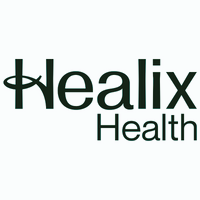Exploring alternatives to PMI for employee healthcare
For many businesses, private medical insurance (PMI) has long been the go-to solution for supporting employee health.
However, with rising costs, changing workforce needs, and a shift towards more holistic and proactive wellbeing support, many employers are exploring alternatives that offer flexibility, cost-efficiency, and personalised care.
By taking greater control of their healthcare plans, employers can better address the unique healthcare needs of their employees and promote a proactive approach to long-term health.
From healthcare trusts to cash plans and self-funding, there are several options available that can provide tailored, effective healthcare benefits for your employees.
Let’s take a closer look at these alternatives and see how they compare to traditional PMI.
Healthcare trusts
A healthcare trust is an employer-funded scheme that allows businesses to set aside money in a trust to cover employees’ healthcare expenses.
Unlike traditional insurance, which operates as an annual contract with premiums adjusted based on rising claims, healthcare trusts offer businesses the ability to retain any surplus funds, rolling these over for future use or reinvesting them to expand benefits.
Key advantages include cost control, flexibility, and customisation, giving employers greater control over the healthcare solutions they provide.
This hands-on approach to benefits management enables businesses to align healthcare with their broader people strategy, building solutions that cater to the unique needs of their workforce.
Advantages:
- Surplus funds can roll over to cover future healthcare expenses or expand benefits.
- Employers can tailor plans to the specific needs of the workforce.
- Greater control over costs and claims management.
Ideal for: Businesses looking for a customisable, long-term solution to employee healthcare with the ability to design bespoke benefits.
Health cash plans
Health cash plans are cheaper than PMI and can complement other healthcare benefits.
These plans reimburse employees for everyday healthcare costs, such as dental treatment, optical care, physiotherapy, and health check-ups. Cash plans focus more on routine and preventive care rather than covering major medical treatments or surgeries.
Advantages:
- Affordable and easy to administer.
- Encourages employees to seek routine healthcare, promoting long-term health.
- Provides set reimbursements for specific treatments or services.
Ideal for: Companies seeking a low-cost option to help employees manage routine health expenses without the high premiums of PMI.
Self-funded healthcare (self-insurance)
In a self-funded or self-insured model, employers take on the financial risk of providing healthcare benefits by paying claims directly, instead of depending on traditional insurance.
This is often used by larger organisations that want more control over costs and the ability to adjust benefits as needed. The business may work with a third-party administrator (TPA) to manage the claims process.
Advantages:
- Lower than anticipated claims improve cost savings.
- Flexibility in structuring benefits and coverage.
- More control over the claims process and provider network.
Ideal for: Larger organisations with the financial capacity to take on more risk and manage claims directly, or those seeking flexibility in tailoring benefits.
Occupational health services
Employers design occupational health services to promote employee health and wellbeing within the workplace.
Rather than focusing on providing insurance for medical treatment, occupational health supports employees in maintaining their physical and mental health through assessments, rehabilitation, and preventive care.
Advantages:
- Supports a healthier and more productive workforce.
- Focuses on prevention and early intervention, which may lead to fewer sick days.
- Services can include health screenings, fitness programs, and mental health support.
Ideal for: Companies that aim to address workplace health and safety issues, particularly those in industries where physical health has a direct impact on job performance.
Flexible benefits packages
Offering employees a flexible benefits package allows them to choose from a range of healthcare and wellness options.
This might include a mix of PMI, healthcare trusts, cash plans, gym memberships, mental health support, and more. Employees can select the benefits that matter most to them, giving them greater control over their healthcare options.
Advantages:
- Offers personalisation to meet individual employee needs.
- Encourages employee engagement and satisfaction by providing choices.
- Can include a mix of preventive and treatment-focused benefits.
Ideal for: Companies that want to offer a variety of benefits to meet the diverse needs of their workforce while maintaining flexibility in their benefits structure.
What’s the right option for your business?
With so many alternatives to PMI available, it’s important to evaluate which option aligns best with your business goals, budget, and employee needs.
While PMI provides comprehensive coverage for major medical treatments, alternatives like healthcare trusts, cash plans, and self-funding offer greater flexibility, cost control, and opportunities to focus on preventive care.
Supplied by REBA Associate Member, Healix Health
The UK's leading independent corporate healthcare trust provider.








